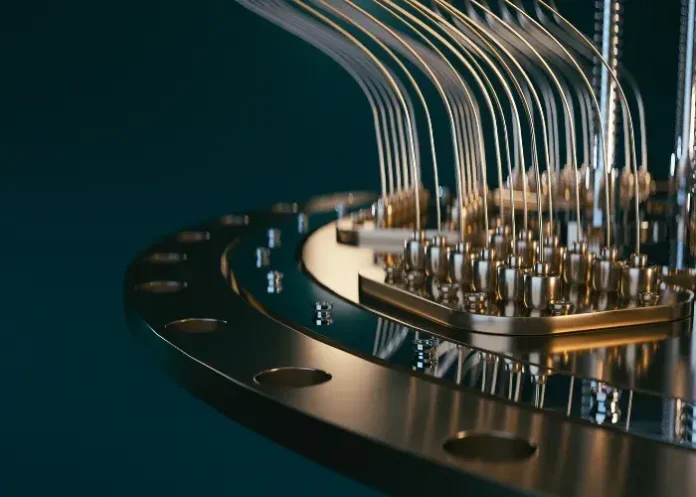Quantum Computing’s Pivotal Shift in 2025: From Physical to Logical Qubits
Quantum computing technologies are expected to usher in a revolution around the corner towards 2025. The huge leap starts immediately logical qubits replace physical qubits, a moment in which quantum computing comes of age.
Transition from Physical To Logical Qubits: Why Misunderstanding Is a Mistake
Technology evolves at an amazing pace with the complexity of computer systems growing every year, and it feels hard to keep pace with the change. For instance, the classical computers consisting of only two-level bits have evolved into systems of terabytes in size like the internet accessing billions of pages in real-time. Yet, the quantum computers are still in their infancy, as they can only operate 2-3 qubits or so in feasibility tests and there are deep theoretical doubts as to how complex quantum calculations can get. The venture is, naturally, way more any human than the now. Transition to logical qubits requires much more than just a dedicated quantum computer design, as even such qubits, subject to quantum noise from the environment, tend not to be particularly functional ones. This will affect the ability to use the quantum correction of errors and is easily extendable over long distances, as information is spread throughout multiple quantum coding schemes. This will clearly make it possible to move quantum computing from the domain of scientific experiments to real world problems, or medium and large scale tasks.
| Aspect | Physical Qubits | Logical Qubits |
|---|---|---|
| Sensitivity | Highly sensitive to noise | Error-resistant due to error correction |
| Reliability | Prone to errors | More reliable and stable |
| Application Scope | Limited capabilities | Suitable for complex computational problems |
| Scalability | Difficult to scale | More scalable for practical applications |
Impacts on Industries
The switch to logical values of qubits will bring numerous advantages to various industries including wind energy and battery technology. For example, in battery and energy storage development, quantum computers could help simulate the storing processes and thus shorten the time to market for efficient batteries or energy storage. In other words, this may also accelerate the advancement of electric vehicles, alternative energy transmission systems and different energy conservation projects.
The availability of logical qubit simulations will increase in terms of quality and quantity, thereby increasing the range of services. Possible fields of application will include:
- Pharmaceuticals: Accelerated exploration of chemical spaces for drug discovery.
- Finance: Enhanced modeling of complex financial systems.
- Manufacturing: Optimization of supply chain dynamics.
- Materials Science: Improved modeling of new material properties.
- Machine Learning: Advancement in algorithm depth and complexity.
The Issue of Sustainable Development
It is a known fact that the subject of quantum computing remains the most significant one. Quantum computing predominantly crops up each time regard is given to the various technological advancements that are taking place from the positive side, however sustainability is still a bone of contention. This assertion can also be supported by the consequences of existing technologies including AI as well as current data centers. Sustainable computing strategies are easy to adopt today in no small amount part because they the the improve many of them are more sustainable and advanced. For example, a typical table-top scale neutral atom system takes up less space than a normal conferencing room and consumes much less power as compared to conventional computer racks within a data center.
| Sustainability Factor | Traditional Quantum Technologies | Neutral-Atom Computing |
|---|---|---|
| Space Requirement | Large data centers needed | Fits within a conference room size |
| Energy Consumption | High energy usage | Lower energy requirements |
| Technical Advancements | Progressing slowly | Rapid advancements observed |
Around the Corner of Quantum Leap?
In approaching the year of 2025, quantum computing is ready for a groundbreaking change. The transition from the physical qubit to the logical qubit is not simply a technical development but a structural change effective to address such age-old issues as low error rates and high scalability which have been obstacles to advancement in this direction.
The changing current makes the transition innovative and the quantum capacity increases the shot at solving the unsolvable. At the end of this year, we will find that many impressing people have implemented quantum computing, and it will be the implementation of that concept at last that has left the sphere of ideas and actively influences various fields of activity.
To sum up, developments in the field of quantum computing that we look forward to are not small increments but a revolutionary approach to the use of these technologies for economic and social benefits. As the frontiers of technology advances are pushed by the biggest names in the segment, we can fairly anticipate that 2025 will turn out to be a defining year for quantum advancement.

